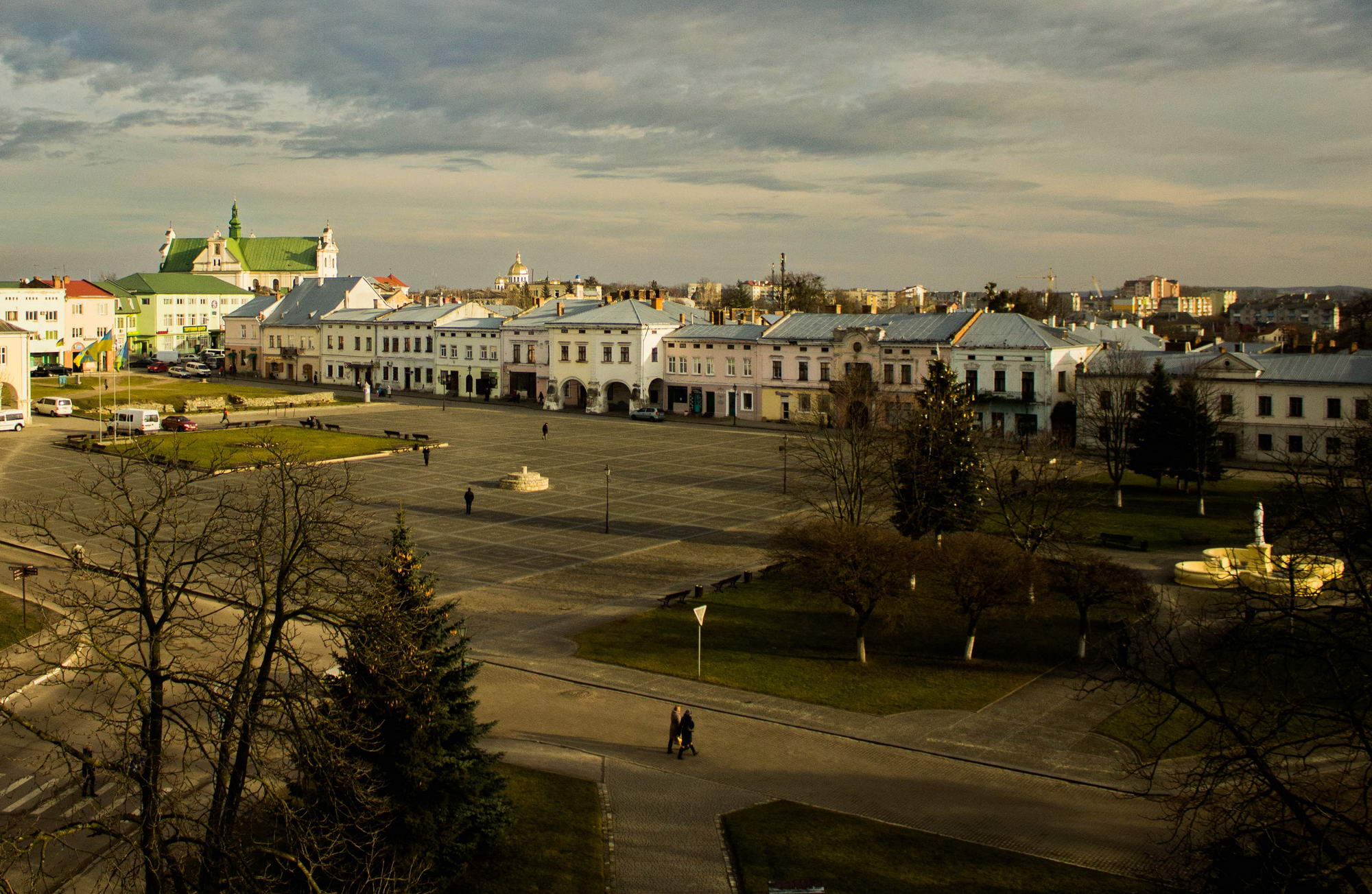Andriy Dvornikov, 27, works as an energy efficiency manager in Zhovkva, a town in western Ukraine. He is convinced that this is a profession of the future, and the number of energy efficiency managers will eventually outgrow the number of the lawyers.
Zhovkva, located 25 kilometers north of Lviv, has already benefited from this craft: Almost half of the 13,000-resident town is heated with biofuel, not gas, consuming substantially less energy and saving up to Hr 5.8 million ($218,900) annually.
Zhovkva Mayor Petro Vykhopen says that Zhovkva’s successful energy efficiency plan resulted unexpectedly.
“Was it not for bad luck, we wouldn’t have had luck at all,” Vykhopen said.
In 2003, Zhovkva authorities were delegated to run Zhovkvateploenergo, a communal company that produces and distributes energy to Zhovkva and several other neighboring towns. Before that, the company was a part of a group of several energy companies and had several million in debt because of consumed gas. They were able to pay it off only in 2011.
Help from abroad
They did it by different means, sometimes quite innovative ones says Vykhopen. For example, the company’s former director Vasyl Kurnat invented a special construction that allowed heating a boiler not with gas, but through burning wooden sawdust. When the novelty proved effective, Zhovkva authorities started looking for money to modernize all the boilers, first in governmental institutions, then elsewhere.
The first help came from the German government in 2012: They didn’t provide any money, however, they agreed to consult Zhovka authorities on energy efficiency. According to Vykhopen, the deal was partly a matter of chance.
One of the German experts, involved in negotiations, a historian, got excited about the contract as soon as he heard that Zhovkva was one of the few towns built within the so-called concept of an ideal city, which was popular during Renaissance. Such city was supposed to be built not to benefit particular classes, but to implement utopian ideas of organizing the living space: The location would be found, a careful detailed and usually a symmetrical plan of the streets would be drawn, and only then the city would be built.
Encouraged by the new knowledge, Zhovka’s activists started to apply for different grants, and in two years they found enough money to realize three projects.
In 2014 and 2015, Zhovkva won two grants from the Covenant of Mayors, a European movement for local climate and energy actions which aims to reduce CO2, worth 1.05 million euros. Another Hr 2.6 million (79,093 euros) came from the Swedish International Development Agency (SIDA). SIDA gave the money mainly for an energy audit of the city’s heating system and budgetary institutions, with the demand that city authorities allocate another Hr 660,274 (20,378 euros) for the purpose, which they did.
The money from the Covenant of Mayors, according to Vykhopen, were meant to be spent on improving the energy efficiency of the pre-school institutions to “achieve the fast social effect,” and to install solid fuel boilers around the city instead of the gas ones.

Zhovkva was one of the few towns built within the so-called concept of an ideal city, which was popular during Renaissance. (Hanna Arhirova)
Becoming energy efficient
First, they provided one of the kindergartens with winterization, changed the windows, installed the heat pump and solar collectors for heating the water, and replaced the central heating.
Svitlana Zub has been a director of the kindergarten since 2011. Before that, she had been working there as a nanny for 21 years. She says that after renovations the children’s attendance increased from 50 percent to 100 percent in cold seasons, kids get sick less and study better.
“It’s understandable, because in some rooms there wasn’t any heat at all. Now I tell the parents they can take away all warm pajamas and shoes, there is no need for them anymore,” Zub said.
Two new boilers that have already been installed on the grant money burn the wooden sawdust instead of gas. This material was selected because Zhovkva region has lots of the wooden waste. Now they warm approximately 33 buildings: budget institutions and tower-blocks.
The old gas boiler house isn’t being used now: Zhovkva authorities keep it for really heavy weather conditions, extremely low temperatures and in case the biofuel boilers get damaged.
Zhovkva officials believe that a decent chunk of the city’s success belongs to the young team that works on all these projects. Svitlana Puchych, 31, is a project manager. She says that implementation of these three projects is an amazing and useful experience.
“I adore my town, it’s a big pleasure for me to work for its development. We don’t just wait until we implement the project to finally get rid of it. Now we are intensively looking for the funding and (a way to) to draw new opportunities for our city,” she said.
